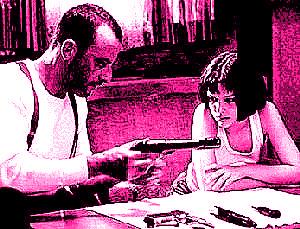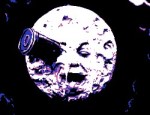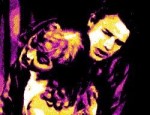Film Review

A provocative film, Léon aroused negative censorship on both sides of the Atlantic, although for differing reasons. In the United States, the relationship between Léon and Mathilda was judged to have the unacceptable ring of paedophilia about it, whilst the Europeans were more concerned with the idea that a 12 year old girl should be taught to use a rifle. Certainly, it would be easy to condemn the film for its apparent complacency with the American gun culture, and the film does have more than its fare share of violent deaths.
The reason why Léon is a great film is not that it is a deliberately shocking, hard-edged action film. Although the action scenes do take up a substantial part of the film, and these scenes are impressively executed, the film works because, amidst all this spectacle and drama, Besson manages to find time to develop some convincing characterisation. The film veers dangerously closely to sentimentality on a few occasions, but the unlikely pairing of a vulnerable young orphan and a solitary professional killer offers an original and thought-provoking view on life. The film is at its most impressive when is at its least spectacular.
Jean Reno, often cast as the silent hard man in French films, is a perfect choice for the silent killer Léon, appearing quite different to the conventional American tough guy. His apparent nativity and courtesy provides a curious contrast with his foul-mouthed, worldly-wise young sidekick, played by the teenager Natalie Portman in her remarkable film debut.
The film pulls off a spectacular role reversal with Léon and Mathilda ending up the heroes, battling for their lives against the true villains, an American drug enforcement agency official played by Gary Oldman, and his gang of murderous henchmen. Oldman's entertaining, over the top performance makes his character a truly formidable adversary, although you do wonder how such a crazed psychopath could ever have got such a senior post in the DEA.
This is not a film that will appeal to all tastes. Besson's obsession with visceral realism can be off-putting, particularly when it goes too far beyond the spectator's experience and expectations. (This is most apparent in his 1999 film, Joan of Arc where some of the killings look faintly ridiculous.)
However, Léon should not be placed in the same category as so many contemporary films which exist merely to shock their audience and glorify violence. This is a film with takes a strong moral standpoint against violence, making clear its corrupting influence on the vulnerable and its inability to resolve life's problems. A valid statement which is well made, but one that is sadly diluted by the intensity of the visual drama which Besson feels obliged to use.
© James Travers 2000
The above content is owned by frenchfilms.org and must not be copied.
Film Synopsis
Léon is a professional hitman whose life is changed forever when he meets Mathilda, a twelve year old girl who lives a few doors next to him. Mathilda is beaten by her father, a drugs dealer who works for a crooked government official, Norman Stansfield. When Stansfield discovers he is being cheated, he sends his men to kill Mathilda's entire family. The little girl escapes the carnage by calling on Léon. With no family, she coerces the hitman to adopt her and train her to be a professional killer, so that she can avenge the death of her younger brother...© James Travers
The above content is owned by frenchfilms.org and must not be copied.
Similar Films
Here are some other films you may enjoy watching:Other related links:
Film Credits
- Director: Luc Besson
- Script: Luc Besson
- Cinematographer: Thierry Arbogast
- Music: Eric Serra
- Cast: Jean Reno (Léon), Gary Oldman (Stansfield), Natalie Portman (Mathilda), Danny Aiello (Tony), Peter Appel (Malky), Willi One Blood (1St Stansfield Man), Don Creech (2nd Stansfield man), Keith A. Glascoe (3rd Stansfield man (Benny)), Randolph Scott (4th Stansfield man), Michael Badalucco (Mathilda's Father), Ellen Greene (Mathilda's Mother), Elizabeth Regen (Mathilda's Sister), Carl J. Matusovich (Mathilda's Brother), Frank Senger (Fatman), Lucius Wyatt Cherokee (Tonto), Eric Challier (Bodyguard Chief), Luc Bernard (Mickey), Maïwenn (Blond Babe), Jessie Keosian (Old Lady), George Martin (Receptionist)
- Country: France
- Language: English
- Support: Color
- Runtime: 136 min
- Aka: Léon: The Professional ; Leon: The Professional ; The Professional
The history of French cinema

The best of American cinema

The greatest French film directors
